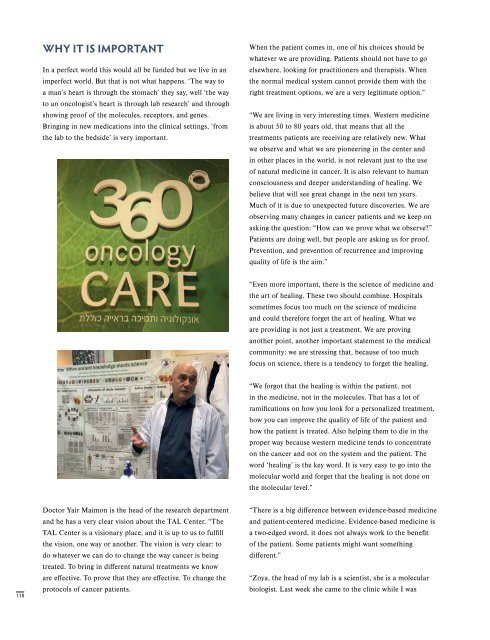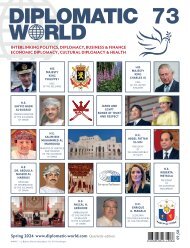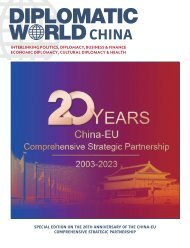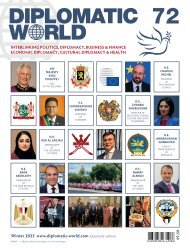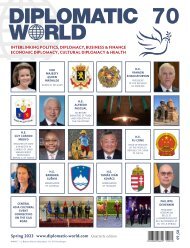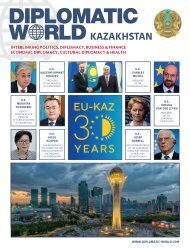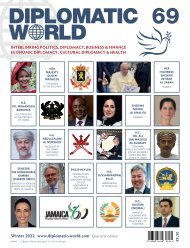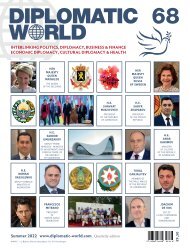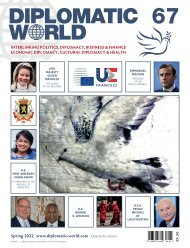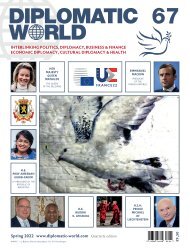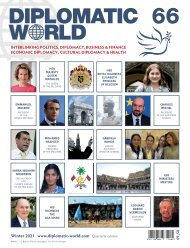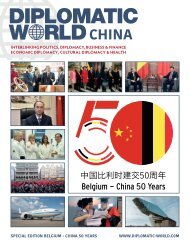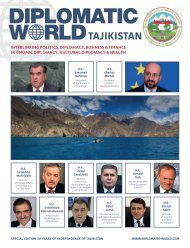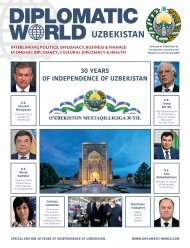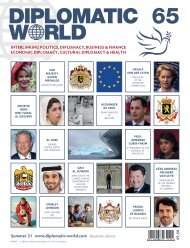Create successful ePaper yourself
Turn your PDF publications into a flip-book with our unique Google optimized e-Paper software.
WHY IT IS IMPORTANT<br />
In a perfect world this would all be funded but we live in an<br />
imperfect world. But that is not what happens. ‘The way to<br />
a man’s heart is through the stomach’ they say, well ‘the way<br />
to an oncologist’s heart is through lab research’ and through<br />
showing proof of the molecules, receptors, and genes.<br />
Bringing in new medications into the clinical settings, ‘from<br />
the lab to the bedside’ is very important.<br />
When the patient comes in, one of his choices should be<br />
whatever we are providing. Patients should not have to go<br />
elsewhere, looking for practitioners and therapists. When<br />
the normal medical system cannot provide them with the<br />
right treatment options, we are a very legitimate option.”<br />
“We are living in very interesting times. Western medicine<br />
is about 50 to 80 years old, that means that all the<br />
treatments patients are receiving are relatively new. What<br />
we observe and what we are pioneering in the center and<br />
in other places in the world, is not relevant just to the use<br />
of natural medicine in cancer. It is also relevant to human<br />
consciousness and deeper understanding of healing. We<br />
believe that will see great change in the next ten years.<br />
Much of it is due to unexpected future discoveries. We are<br />
observing many changes in cancer patients and we keep on<br />
asking the question: “How can we prove what we observe?”<br />
Patients are doing well, but people are asking us for proof.<br />
Prevention, and prevention of recurrence and improving<br />
quality of life is the aim.”<br />
“Even more important, there is the science of medicine and<br />
the art of healing. These two should combine. Hospitals<br />
sometimes focus too much on the science of medicine<br />
and could therefore forget the art of healing. What we<br />
are providing is not just a treatment. We are proving<br />
another point, another important statement to the medical<br />
community: we are stressing that, because of too much<br />
focus on science, there is a tendency to forget the healing.<br />
“We forgot that the healing is within the patient, not<br />
in the medicine, not in the molecules. That has a lot of<br />
ramifications on how you look for a personalized treatment,<br />
how you can improve the quality of life of the patient and<br />
how the patient is treated. Also helping them to die in the<br />
proper way because western medicine tends to concentrate<br />
on the cancer and not on the system and the patient. The<br />
word ‘healing’ is the key word. It is very easy to go into the<br />
molecular world and forget that the healing is not done on<br />
the molecular level.”<br />
138<br />
Doctor Yair Maimon is the head of the research department<br />
and he has a very clear vision about the TAL Center. “The<br />
TAL Center is a visionary place, and it is up to us to fulfill<br />
the vision, one way or another. The vision is very clear: to<br />
do whatever we can do to change the way cancer is being<br />
treated. To bring in different natural treatments we know<br />
are effective. To prove that they are effective. To change the<br />
protocols of cancer patients.<br />
“There is a big difference between evidence-based medicine<br />
and patient-centered medicine. Evidence-based medicine is<br />
a two-edged sword, it does not always work to the benefit<br />
of the patient. Some patients might want something<br />
different.”<br />
“Zoya, the head of my lab is a scientist, she is a molecular<br />
biologist. Last week she came to the clinic while I was


